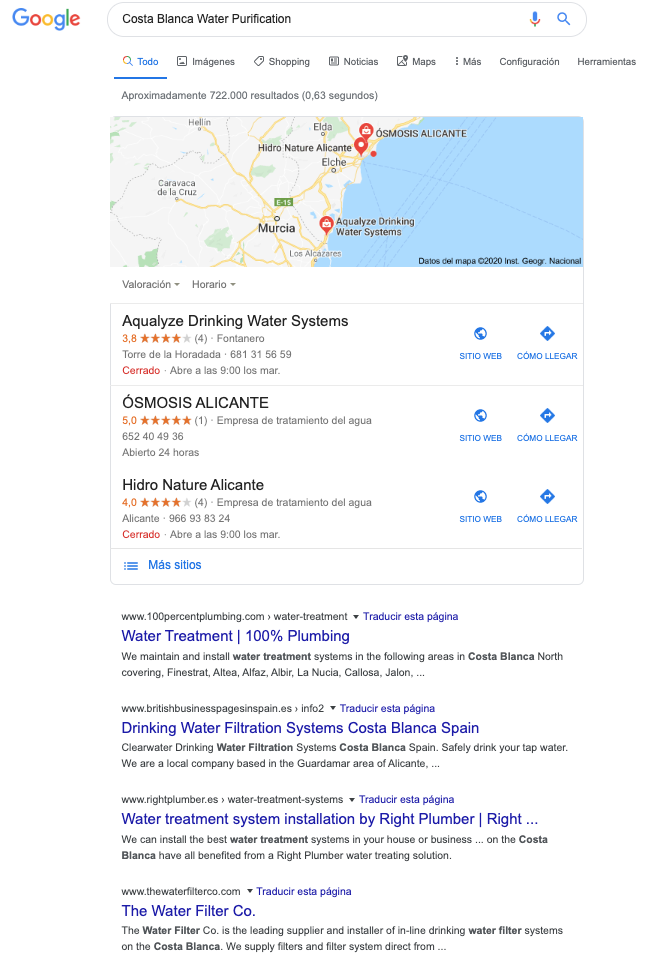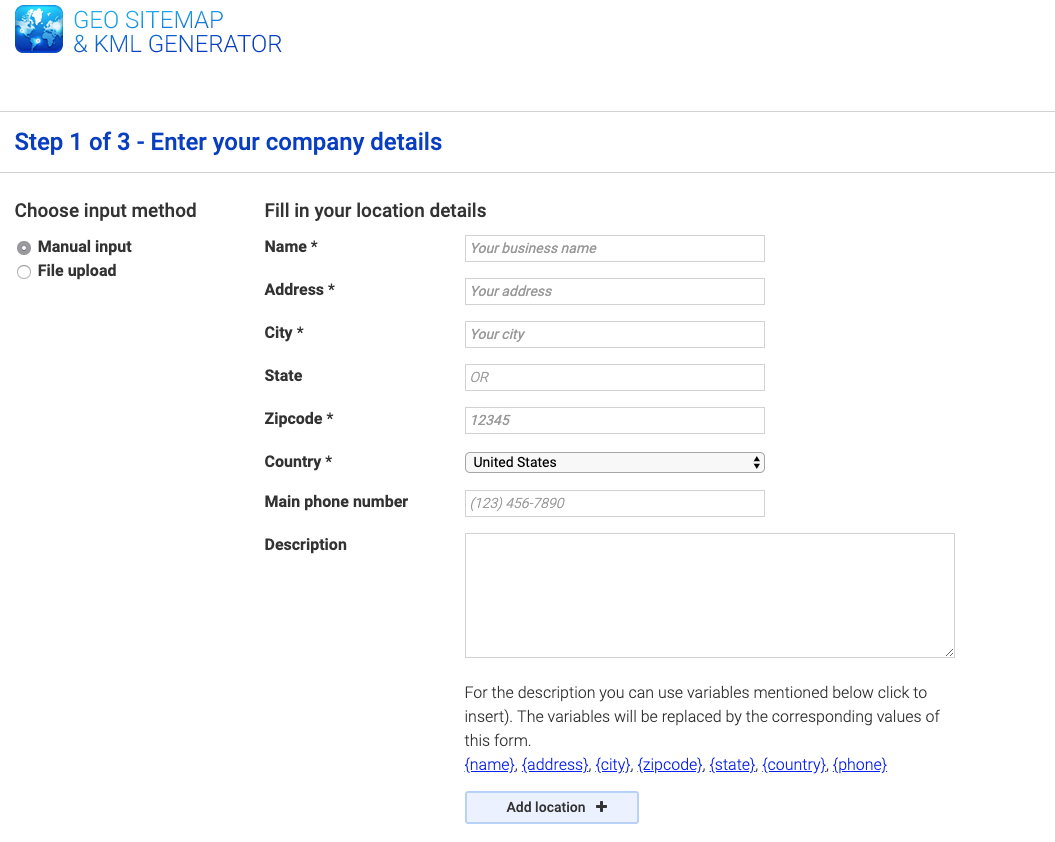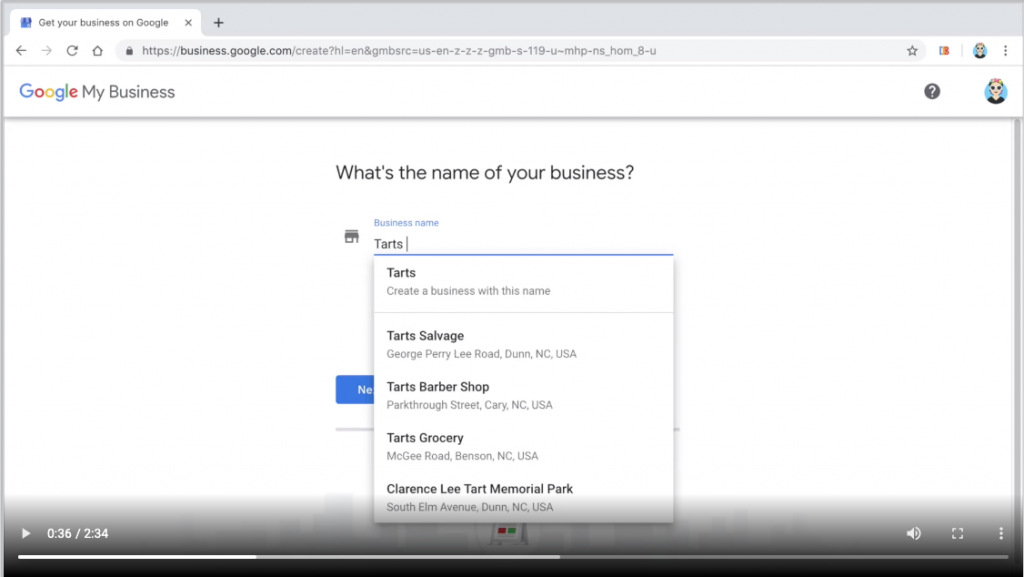What is Local SEO and how to improve it in 2020?
Can local SEO help us to be more visible in organic search results? As we have commented on other occasions, SEO is the set of techniques aimed at improving the position of a website in the organic results of the different existing search engines. These techniques, in general, focus almost exclusively on Google as it about 92% of monthly searches on the Internet.
Quick Links
Source: StatCounter Global Stats – Search Engine Market Share
But what about local searches or local SEO? Let’s see its definition now:
What is local SEO?
Local SEO is a set of techniques aimed at increasing the visibility of a web page or eCommerce in the search for relevant information for users based on their current geographic location.
Or in other words, make the website of a company that has physical business premises or provides a service in a specific geographical area, be found by potential customers in that area who are searching services related to that business.
This does not mean that local SEO won’t position our website in a more global environment. The key here is to ensure that local SEO is more important if the business actually makes its revenue locally.
Let’s take the example of a plumber that is Alicante, Spain – they are not going to be able to service your boiler if you live in London!
Therefore, the SEO strategy has to be focused almost mainly on the local level, but also on a slightly more regional one – how far are they willing to travel it to carry out their services. Probably about 40 maybe even 50 km.
What is local SEO for?
A business’s presence on the Internet has become a key factor and one that every company must consider, especially if it intends to achieve its objectives in an increasingly complex, competitive and global market.
Network access has completely transformed the way people relate to brands and businesses.
Just a decade ago, a customer decided to buy (or not) a product or service based on the information that brands provided through their advertising campaigns.
Currently, things have changed: the communication flow is bidirectional.
However, it should be pointed out that the objective of SEO is not only to ensure that our website or blog is on the first page of Google’s search results but also to generate more sales and conversions. While both objectives are very closely related, you should remember that positioning is only a means to an end.
The main thing is to offer value to our target audience with useful and quality content. With this, we not only get a greater amount and better quality traffic for our website (good content is always shared), but we also create a positive brand image.
But, as if this were not enough, we also fulfilled one of Cialdini’s principles of influence (that of reciprocity), according to which “in order to receive, something must be given in return.” Check out the video for the full whammy:
But the question remains “Is local SEO as necessary as SEO in broader geographical areas?
The answer is: yes.
At the local level, the commercial market – especially in medium and large cities – is not exempt from the presence of increasing competitiveness. It doesn’t take much to look up a piece for a swimming pool on Amazon and have it delivered to your house in 24 hours. The alternative is to look for a local plumbers outlet and go and buy it there. If you are like me and don’t know whether you are buying the right part you may prefer to take the drive to the plumbers – the first ones you find on Google that is to say! But the lesson is clear – we live in a globalized world where local competition is no longer the only competition.
However geographic proximity can make us more attractive to a user who is looking for us, especially taking into account that Google maps play an important role here. That is why, enhancing that localisation facet in our visibility strategy, can give us a plus and favour us competitively.
There is no doubt that being among the first search results in Google will ensure a substantial increase in the number of conversions and sales that our business will experience in the short, medium or long term.
What benefits does Local SEO have?
If our business does not have a service or product that we can distribute more globally, these techniques help us to geolocate our search results and allow us to compete against not only the local competition but also in part the global competition.
And, as I explained in the previous point, that geographical and proximity component favours the user who is conducting a search … when competing for the top positions with other results. Furthermore, we will also become more visible on Google maps – important if the searcher is already in their car!
In addition, appearing in the first results of Google gives an image of incomparable professionalism compared to those that appear below. Not convinced?
About 50% of the clicks that users make after a search are made in the first link of the organic results, that is, those whose position occurs naturally based on the indexing that the Google bot considers it deserves.
As we said before, the benefits of local positioning are evident, according to data from a study carried out a couple of years ago:
71% of clicks are received by the first 3 results of the search engine page in a given search, while all the rest of them must be satisfied with distributing the remaining 29%.
Today, web positioning is not only necessary to be able to compete in a saturated market, but it also contributes greatly to the creation of our company’s brand image in the city or place where its main clients reside.
How to do Local SEO for my website?
The first thing we must do before starting to carry out specific actions is to design a positioning strategy that contemplates the following aspects:
- Define as accurately as possible our activity and the commercial sector to which it belongs – that may be a niche (for example an English speaking plumber in Spain)
- Define the geographical area of influence – basically where you are willing to work, deliver or service
- Define our Target Audience and Buyer Persona – for example the silver-haired expat with a second home in Alicante
- Identify the keywords that best define this activity
- Select the keywords that contain our location parameters – English plumber Alicante
- 6th Detect and analyze our competition, whether local or not and direct or indirect.
- Register and complete the profile on Google My Business
- Identify resources available to the team: time, budget, tools and human team.
Defining your activity, commercial sector, geographical area of influence and ideal client is very important first step that needs to be done very carefully since, from it, the survey of keywords will be carried out, that is, those that are most likely to be searched on Google by customers to find a certain service or product.
How to sign up for Google My Business
Add a business listing through Google My Business
Well rather than taking you through all the details here you can go to Google’s own instructional video and just follow along:
How do users search and how does Google show local results?
Each type of search intention has its peculiarities, whether geolocated or not.
So when a user searches for something, Google tries to interpret what he is asking. And if that query is not complete, the search engine makes decisions for us to better adapt to what we need and offer us what he thinks are the best results.
Let’s see an example:
Suppose a user on Spain’s Costa Blanca needs to have a repair done in their water purification system.
Most likely, this person will search Google for “Costa Blanca Water Purification” and will go to the first results they get served up.

But do you see that first result – that’s us but we need to be on those maps as well because as the sun will rise people oare going to click on those links first
What keywords should we use fo local SEO?
There are basically 3 kinds of keywords: Head, Middle tail and Long tail.
- Head: These are very broad searches, which usually have a lot of search volume and a lot of competition (example: Blog, web, home, etc.).
- Middle Tail: Searches a little more specific, but still being generalists (example: Fashion blog, website).
- Long Tail: they are very specific searches and they usually have little competition (example: How to create a fashion blog, How to make a free web page).

The first, as you can understand, are those that have a large number of searches and too high a competition to be easily positioned. In fact, these could be part of a Google Ads campaign. The middle and long tail, on the other hand, have fewer visits and are usually not very competitive, something that implies a more affordable positioning.
Thus, in the face of local SEO, it is much more convenient to use several middle and long-tail keywords directly related to our services or business and also have that local component, as in the previous example.
Tools to use to find the best keywords for your Local SEO
To find the best keywords it is convenient to start with the Google Adwords Keyword Planner, although it is not convenient to base all the analysis on it since for some months it has stopped providing its users with the exact volume of keyword searches.
At present, this tool only offers a numerical range whose poor precision has to be complemented with the use of other keyword analysis tools such as SEMrush, Ahrefs, Keywordtool.io, KeywordFinder among others.
What to consider when creating content?
One aspect that must be taken into account is the size of the smartphones compared to the PC screen and the fact that we all use them wherever we are – not only when we are out but also in the office or home. The fact that the user can be in very different places makes it possible to use the keyboard-less and to specify the information searched on Google as quickly as possible.
It is for all this that we must create content that gets to the point quickly, without losing the creative touch that every text must have to capture the reader’s attention, but must always be relevant – lose relevancy and you lose the searcher.
Moreover, we need to show that we are an authority on the issues addressed – albeit a local authority because of years in business because we are part of the community etc – you get the picture. You need to make sure that the content is correct and sufficiently in-depth to gain the trust of the searcher.
Check out the competition – see what they are saying and say it better. This is the so-called Skyscraper technique – find the leading piece in Google and make it better and publish. Mark Webster over at Authority Hacker has a version of the Skyscraper technique on steroids. He conveniently put it on a [eafl id=”19082″ name=”Authority Hacker Podcast” text=”podcast”] so you can listen through (the links are always changing – but you can search for it is number #148 or search “skyscraper).
Also, one of the keys to good local SEO is the implementation of a very good responsive design for your website, the structure of the texts and headings, which increase the effectiveness of Google search from a Smartphone or Tablet and, therefore, Mobile user satisfaction. You could also use AMP which is a very fast framework developed by Google which accelerates the page and makes it rank higher.
Some Local SEO techniques to consider
A good starting point for local SEO is the updating of information regarding our company, fundamentally this data:
- Name
- Address
- Opening hours
- Phone
Likewise, the use of labels and meta descriptions on each of the pages of our website is essential. In the case of local SEO, it must be said that Google gives a lot of weight to the quality of the geometatags or tags related to the geographical situation.
It is also advisable to include the name of the city or town in one of the titles that make up your pages, although always naturally.
In turn, the Geo Sitemap or geographic map should make it clear to search engines where exactly our business is located. It is not a redundant measure since we have already clarified to Google the name and address of our business. If you want to generate a Geo Sitemap then you can use Arjan Snaterse’s Geo Sitemap tool.

This action is absolutely essential! And not only because neither the algorithm nor the person in charge of doing SEO is infallible, but because there are many cities with the same name around the world.
On the other hand, registering a location in Google Maps (and the corresponding optimization of our website in Search Console) will add other elements to be taken into account by the algorithm.
Local Social Media
Why do we need local social media? Very simple: at the local level, social networks influence much more effectively than globally, due to the greater flow of information that occurs between people living in a particular city or town.
Getting opinions on Google Maps and also on Google My Business is an essential part of local social media. Encourage happy customers to give a review. The same goes for Facebook and if your business is B2C then also in Tripadvisor. They are all essential steps to build your local authority.
Finally, it is worth mentioning the existence of other influential factors in the ranking of our local website, such as the inclusion of links to citations of quality local directories or sites that share our area or location.
Google Indexing
As we mentioned before, the way Google indexes pages have changed.
In the semantic web-based on the new Hummingbird algorithm, whose objective is to predict the user’s search intention when making a query on Google – the core is now around the satisfaction of the user’s search experience.
Therefore, in addition to quality content focused on the user’s needs, it is good to include microdata and microformats in the code of our website, since it can make a difference with respect to our direct competitors. These are two labelling systems based on the needs of the semantic web.
They add meaning to our website, and at the same time offer more specific information to the user about our business, such as its location, its relationships in social networks, the numerical valuation that its customers make of it or future events to be held. Microformats are captured on the microformats.com website and are usually more complicated to implement than microdata, based on Schema.org guidelines.
You can check your schema using Google’s own Structured Data Testing Tool.
Why WooCommerce is the Best Choice for Your Online Store?
WooCommerce stands out as a top option for anyone looking to build an online store. This platform…
0 Comments8 Minutes
How to Use AI-Powered SEO Tools for WordPress eCommerce
SEO is a critical factor in the success of any e-commerce WordPress store. As competition…
0 Comments11 Minutes
Why Short-Form Videos Are the Future of Content Marketing
Your Instagram customers spend over 50% of their time watching short-form videos and reels. Rather…
0 Comments12 Minutes
The Role of Digital Marketing in Business Growth
Online marketing touches every aspect of a business, whether it is initiating the idea or for an…
0 Comments3 Minutes
AI Meets Authenticity: Balancing Automation and Human Touch in Content Marketing
Is your brand starting to sound like a robot? In a world where algorithms write faster than any…
0 Comments8 Minutes
Essential Tools for Enhancing Web Design and UX Hosting
Have you ever visited a website that felt slow, clunky, or confusing? A website that is poorly…
0 Comments11 Minutes
How a Mini Cart Transformed My Store’s Shopping Experience
Okay, real talk—running an online store is hard. You think you’ve got everything figured out, you…
0 Comments9 Minutes
Balancing Your Security Initiatives With Industry Compliance Requirements
Managing a business today comes with a number of daily battles that need to be fought. Resources…
0 Comments11 Minutes
3 Comments
Comments are closed.










Thank you for the good tips. Local SEO is very important to all businesses around. Local SEO also raises our exposure to a greater degree. I’ve seen a lot of company taking a lot of lead just by doing local SEO
Thanks & Regards
Aria Mathew